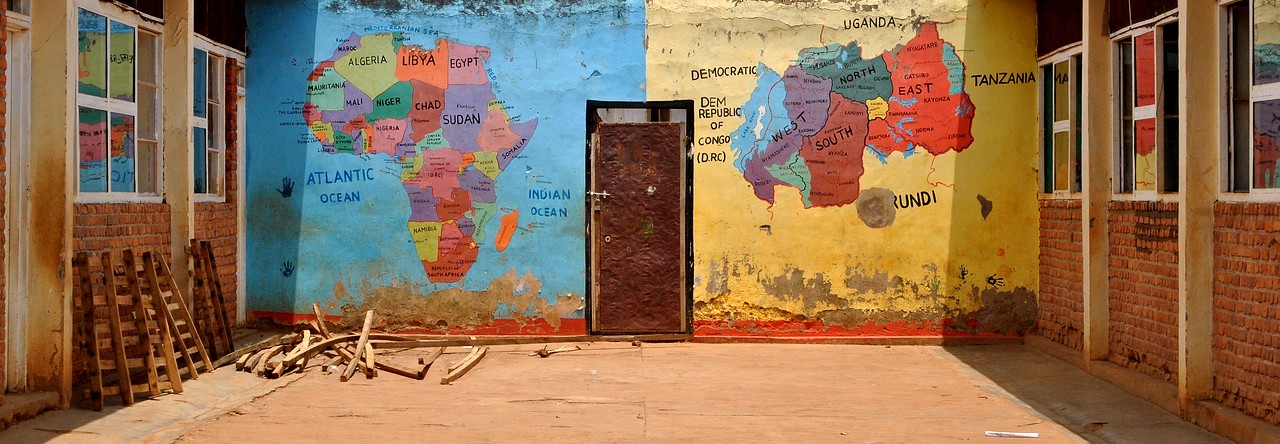 — By Gugulethu from Zimbabwe
— By Gugulethu from Zimbabwe
This project was completed as part of a special course on electricity in partnership with the Enel Foundation.
There is nothing that can explain the euphoria that overcomes me every time I board a bus and I’m headed to that one place I call home – Bulawayo, Zimbabwe. In the purée of my thoughts I’m often engulfed with the numerous activities that I will undertake once I get there ranging from reconnecting with old friends, seeing my family, and having to devour all of my holy grail foods. More times than not these thoughts are watered down by the sudden realization of the harsh realities of the socio-economic injustices in my country, which is often clouded by my aloofness.
The first thought of these inequalities that make my stomach churn is the numerous involuntary candle light dinners that I would have to succumb to, not because my family is too romantic but because the dire electricity blackouts are the order of the day; it has become the norm. As I sit on the bus my mind often flashes back to a time when I was studying towards my O Level exams. I always dub that time as one of the hardest and most intrinsic parts of my existence. Our country was experiencing our greatest economic recession partly caused by sanctions imposed by the West, and when the West sneezed, it meant that the minorities like us would catch the cold.
I vividly remember how I would get home and find that there is a blackout and I would have to aid my grandparents in gathering pieces of firewood if they did not have enough money to purchase it. This would lead to making a fire; in unfortunate times it would either be raining or icy cold. All of this had to be done on a daily basis and I would still have to study with a candle in my most critical high school phase. I like to reiterate how I could have done better, could have got better marks in my O Level if I had a conducive environment to study in. One may argue through an old adage and even quote Beyoncé that when life gives you lemons make lemonade, but the government officials and policy makers have no idea the psychological turmoil which is felt mostly by young people brought about by the lack of electricity.
As a black person living in a third world country, one is expected to accept the status quo, be comfortable with it, and view it as the norm. Flash forward to Zimbabwe’s current electricity situation, the juxtaposition in the economical inequalities in comparison with my current country of residence, South Africa: the difference is quite alarming. Starting off with South Africa, the load-shedding is relative to where one stays.The rich and the middle class rarely empathize with those that live in informal settlements, who don’t experience blackouts because there is no electricity to begin with. What makes the plight of those living in informal settlements saddening is the fact that they live right in the heart of the urban areas where they can make a physical comparison to the wealthy, where a road separates beaming lights from smoke and dust.
Bringing it closer to home, in Zimbabwe, the supply of electricity is still critical, as ‘load shedding’ is used on a routine basis. It still puzzles me to this day that the only way the government can regulate the power generation capacity to meet the demand is to cut electricity for taxpayers and citizens at large for long periods of hours, even days. Instead of seeking aid from international organizations and external funding sources to step in and sponsor alternative, clean, sustainable, and renewable energy solutions like solar energy. Solar energy has fewer carbon emissions and in the process curbs the increase of global warming and climate change. Still, solar energy hasn’t been deeply exploited in Zimbabwe.
People that stay in the rural areas suffer the most as 19% of the total rural population have access due to the prohibitive costs of extending national electricity grids. In addition, no new developments have been made in the country’s generation sector since the commissioning of the Hwange Coal Plant in 1988, meaning all coal fired stations in Zimbabwe are in need of major upgrades. They have numerous and frequent production stops, or to say the least are not producing at all which is one of the key contributors to the longevity of blackouts. Therefore, this has been affecting the economic performances of food industries, hospitals, banks, businesses and households.
Nobody knows when the stability of various industries in Zimbabwe will prevail but I would propose conferences with solutions that have an aim of boosting international awareness and attracting potential funding sources. These dire circumstances have contributed to a lot of brain drain and young people fleeing to other countries for greener pastures. With in-depth analysis some of these solutions would be undertaken in areas like my hometown Bulawayo and the Eastern Highlands which could benefit from the installation of wind turbines as they have the highest wind speeds. With due course, we should ditch the use of coal (which is one of the major energy suppliers in the country) which has the most waste problems of all energy sources like sulphuric, radioactive elements, excess ash and nitrogen oxides amongst others.
On the note of complexities or inconsistencies of electricity supply, I have missed out on a lot of opportunities as a budding journalist and copywriter. I have to be constantly on the global web researching, have my camera handy to document any news that might spring up, have a place to jot down notes and ideas when my creative muse is on my side. We have had to throw away perishable foods when there were long power cuts, which is always a strain financially, and contributes to excess solid waste being emitted.
One of the utmost complexities of the aforementioned juxtaposition of ensuring adequate and consistent electricity supply in South Africa, Zimbabwe and Africa at large is having inept government officials that over-promise in elections and underdeliver post elections. A majority of African political leaders are unscrupulous, lack accountability, and only when the day comes when they empathize, gain insights and foresights, and put people first instead of their reputation and pockets, Africa will steer towards the right direction.
I envision a time when African policy makers having a grasp of understanding that electricity is part of infrastructural development, making it pivotal to economic development. I have premonitions of a time when there would be enough advocacy to show the need that people who live in rural areas of Gwanda in Zimbabwe and informal settlements in Kya Sands in South Africa experience.
Advocacy and profiling of the statistics of relatives of the man who died due to a power cut in Mpilo Hospital in Zimbabwe. Lest we forget an entire family that died when they inhaled carbon monoxide from sleeping with a primer stove in their house in Marondera. To the man who was given a hefty fine for bridging electric wires because it’s just TOO expensive. And lastly, I live to see a day where crime is not perpetrated more on our women, who are raped, abused, and killed because they were 2 minutes away from the light.
I envision a time when I take my next trip to Zimbabwe with a radiant smile. As I leave South Africa with hope. As I put my earphones in to listen to Drake’s album, I want to sincerely sing along and say indeed ‘WHAT A TIME TO BE ALIVE’ — in Africa.

 — By Samantha from Zimbabwe
— By Samantha from Zimbabwe